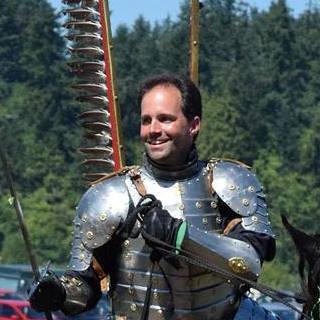Before I go any further, let me say that the game is extremely well done. The puzzles start out simple, but rapidly become more challenging. There are multiple regions where new puzzle concepts are introduced and you can figure out what you are supposed to do with a limited number of variables. Then the puzzles ramp up in that zone, gradually becoming more complex. There were several times that I had to walk away from a puzzle because I just couldn’t grasp what I was supposed to do. There was one area in particular that I came up to six or seven times before I finally figured out the secret to solving the intro/tutorial level. But, the best part of it and something that the game does amazingly well is making you feel smart for figuring it out. If you don’t use hints or walkthroughs, you gain a sense of accomplishment and there is this wonderful “ah ha!” moment when you finally crack a puzzle that has been stumping you for hours or days and invading your mind until you dream of mazes with obscure rules that you sometimes are guessing at.
So yes, I really enjoyed the game and if you are a fan of puzzles and piecing small bits of logic together from limited clues, I highly recommend it. As I said before, this game will make you feel smart as you stumble through it. However, it does not feel like a game.
I spent hours upon hours on that island, exploring the beautiful scenery trying to find another puzzle to solve or another laser to activate. I searched high and low for the little recorders that read back famous quotes, poetry, or speeches. I played and watched the hidden movies in a projector that is not easy to find. But, at the end of it all, I can’t really tell you anything about The Witness as a world. And to keep this in perspective, I completed the game just over twenty-four hours ago.
Contrast this to Myst. Sure, the island in The Witness is several times larger, but I know nothing of the world. What do I know? I know the rules for the puzzles. That is what I remember. I have some images in my head of the scenery, but those will fade with time, I am sure. With Myst, I remember the world, the universe, the idea of creating worlds in books and visiting them, the story of the two brothers and the inevitable (but not sudden) betrayal as they try to play you for a patsy. I cannot tell you how many years ago I played Myst, but this still stays with me. I think this is very telling.
I can’t help but make comparisons to Braid, as I am sure many people do. Both of the games have clever mechanics and are beautiful. Where The Witness has those moments of intelligence and making you feel smarter, Braid has substance and story, one that I found amazing and will not ruin for anyone. My recommendation for Braid? Play it, you should absolutely give it a shot unless you are not a fan of games or strongly detest platformers. My recommendation for The Witness? Do you like puzzles? If so, pick it up, but otherwise stay away. You won’t find anything else here.
This is a subtle but very important difference, and to me, it shows the importance of narrative. I think the memory is very telling. No matter how good a game is with mechanics, the range of emotions that it can evoke – that ability to etch itself into memory – is very limited if it is lacking of narrative. As a storyteller myself, I want to have that effect. I want to push people to that sense of wonder. To paraphrase an idea that is on one of the recordings in The Witness itself, I want to inspire awe. In my opinion, The Witness fails to do that.
Yes, I am biased, and I admit that. I want more than just a challenge. I want a story. I believe that stories flush out a world and make it real, which then creates the ability to move us in a way that stays with us for years afterwards. The story can be simple. The story can be told in a different manner than just putting a player on rails: it can be told through scenery, through characters, through item descriptions, or through those extra collectibles that offer viewpoints into the world you are temporarily inhabiting. But, for a game to really have that impact, the narrative has to be there.
In summary, while I enjoyed the game and it was satisfying, it felt empty. I had fun, but it was temporary, and not something that will stay with me. And I think calling it another Myst, as I have seen many reviewers do, is a disservice to one of the things that made Myst (and many other games) truly fascinating and captivating. Playing The Witness felt like playing Portal, but without having GLaDOS and the arc of trying to escape a testing facility.
So now it will be jumping back into Dark Souls 3, where I will be challenged, die a lot, swear some more, and feel like I am part of a world.

 RSS Feed
RSS Feed
